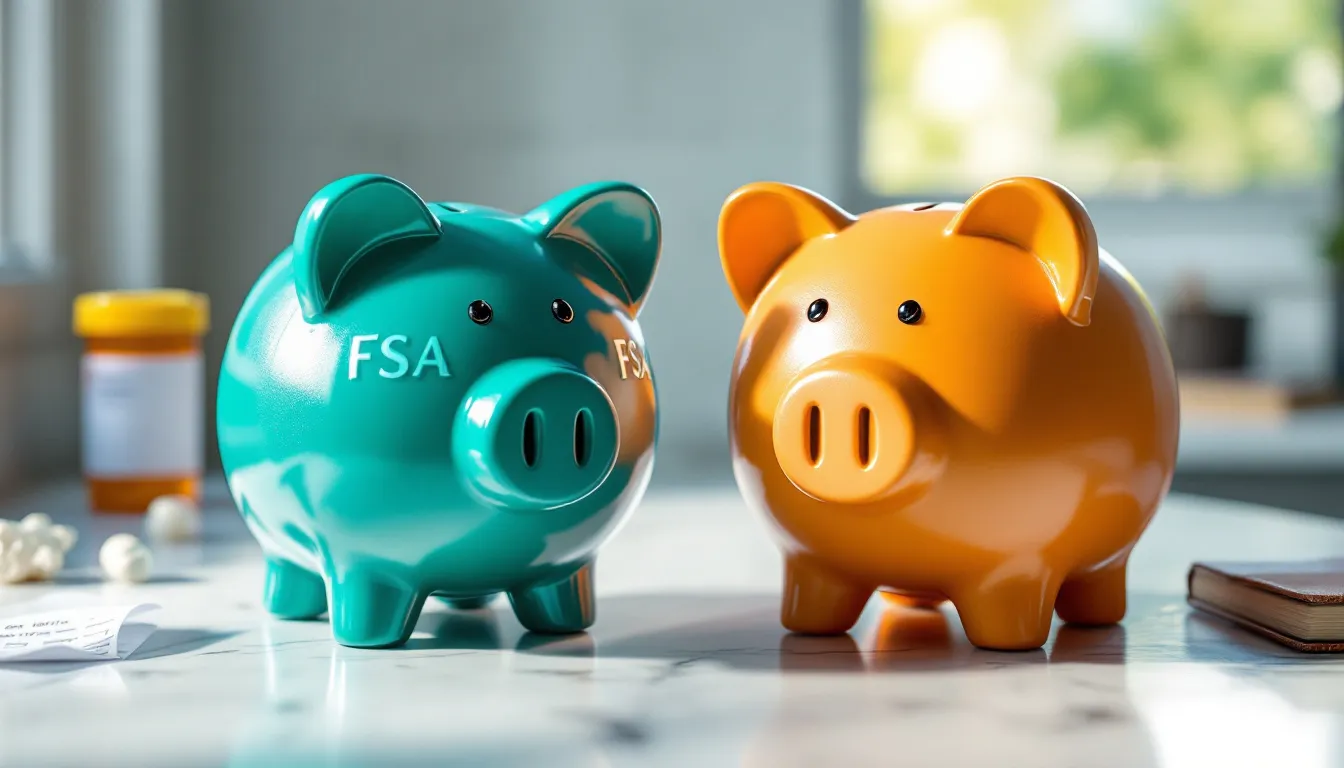Is
Is
Is
At Home COVID-19 Test
At Home COVID-19 Test
At Home COVID-19 Test
HSA eligible?
HSA eligible?
HSA eligible?
Is it HSA eligible?
At-Home COVID-19 Test reimbursement (provided the full cost has not been covered by a health plan) is eligible with a flexible spending account (FSA), health savings account (HSA) or a health reimbursement arrangement (HRA). At-Home COVID-19 Test reimbursement is not eligible with a dependent care flexible spending account (DCFSA) or a limited-purpose flexible spending account (LPFSA).
At-Home COVID-19 Test reimbursement (provided the full cost has not been covered by a health plan) is eligible with a flexible spending account (FSA), health savings account (HSA) or a health reimbursement arrangement (HRA). At-Home COVID-19 Test reimbursement is not eligible with a dependent care flexible spending account (DCFSA) or a limited-purpose flexible spending account (LPFSA).
At-Home COVID-19 Test reimbursement (provided the full cost has not been covered by a health plan) is eligible with a flexible spending account (FSA), health savings account (HSA) or a health reimbursement arrangement (HRA). At-Home COVID-19 Test reimbursement is not eligible with a dependent care flexible spending account (DCFSA) or a limited-purpose flexible spending account (LPFSA).
At-Home COVID-19 Test reimbursement (provided the full cost has not been covered by a health plan) is eligible with a flexible spending account (FSA), health savings account (HSA) or a health reimbursement arrangement (HRA). At-Home COVID-19 Test reimbursement is not eligible with a dependent care flexible spending account (DCFSA) or a limited-purpose flexible spending account (LPFSA).
What is an At-Home COVID-19 Test?
At-Home COVID-19 tests, sometimes called “self tests” or “over-the-counter tests”, are those that can be performed on yourself at home or anywhere. Currently, at-home tests only detect current infection by testing for SARS- CoV-2, the virus that causes COVID-19. No self-tests are available to detect antibodies, which would suggest past infection (CDC). At-home tests may be used when you have COVID-19 symptoms, or have been in close contact with an individual infected with COVID-19 (CDC). Specifically, the CDC recommends using an At-Home COVID-19 test in the following scenarios: * If you have COVID-19 symptoms, use a self-test immediately * If you were a close contact of someone with COVID-19, self-test after at least 5 days, plus a second test in 1 or 2 days if your first test is negative (See Serial Testing, below) * If you are testing before a gathering, test immediately before the gathering (or as close in time to the event as possible) At-Home COVID-19 Test Eligibility At-Home COVID-19 tests are a qualified medical expense and are FSA/HSA eligible. However, many health plans cover these tests at no cost to the participant. If the cost of the test has already been covered by the health plan, a participant cannot also request reimbursement from a tax-advantaged benefit such as an FSA or HSA. As always, be sure to check with your plan administrator.
What is an At-Home COVID-19 Test?
At-Home COVID-19 tests, sometimes called “self tests” or “over-the-counter tests”, are those that can be performed on yourself at home or anywhere. Currently, at-home tests only detect current infection by testing for SARS- CoV-2, the virus that causes COVID-19. No self-tests are available to detect antibodies, which would suggest past infection (CDC). At-home tests may be used when you have COVID-19 symptoms, or have been in close contact with an individual infected with COVID-19 (CDC). Specifically, the CDC recommends using an At-Home COVID-19 test in the following scenarios: * If you have COVID-19 symptoms, use a self-test immediately * If you were a close contact of someone with COVID-19, self-test after at least 5 days, plus a second test in 1 or 2 days if your first test is negative (See Serial Testing, below) * If you are testing before a gathering, test immediately before the gathering (or as close in time to the event as possible) At-Home COVID-19 Test Eligibility At-Home COVID-19 tests are a qualified medical expense and are FSA/HSA eligible. However, many health plans cover these tests at no cost to the participant. If the cost of the test has already been covered by the health plan, a participant cannot also request reimbursement from a tax-advantaged benefit such as an FSA or HSA. As always, be sure to check with your plan administrator.
What is an At-Home COVID-19 Test?
At-Home COVID-19 tests, sometimes called “self tests” or “over-the-counter tests”, are those that can be performed on yourself at home or anywhere. Currently, at-home tests only detect current infection by testing for SARS- CoV-2, the virus that causes COVID-19. No self-tests are available to detect antibodies, which would suggest past infection (CDC). At-home tests may be used when you have COVID-19 symptoms, or have been in close contact with an individual infected with COVID-19 (CDC). Specifically, the CDC recommends using an At-Home COVID-19 test in the following scenarios: * If you have COVID-19 symptoms, use a self-test immediately * If you were a close contact of someone with COVID-19, self-test after at least 5 days, plus a second test in 1 or 2 days if your first test is negative (See Serial Testing, below) * If you are testing before a gathering, test immediately before the gathering (or as close in time to the event as possible) At-Home COVID-19 Test Eligibility At-Home COVID-19 tests are a qualified medical expense and are FSA/HSA eligible. However, many health plans cover these tests at no cost to the participant. If the cost of the test has already been covered by the health plan, a participant cannot also request reimbursement from a tax-advantaged benefit such as an FSA or HSA. As always, be sure to check with your plan administrator.
What is an At-Home COVID-19 Test?
At-Home COVID-19 tests, sometimes called “self tests” or “over-the-counter tests”, are those that can be performed on yourself at home or anywhere. Currently, at-home tests only detect current infection by testing for SARS- CoV-2, the virus that causes COVID-19. No self-tests are available to detect antibodies, which would suggest past infection (CDC). At-home tests may be used when you have COVID-19 symptoms, or have been in close contact with an individual infected with COVID-19 (CDC). Specifically, the CDC recommends using an At-Home COVID-19 test in the following scenarios: * If you have COVID-19 symptoms, use a self-test immediately * If you were a close contact of someone with COVID-19, self-test after at least 5 days, plus a second test in 1 or 2 days if your first test is negative (See Serial Testing, below) * If you are testing before a gathering, test immediately before the gathering (or as close in time to the event as possible) At-Home COVID-19 Test Eligibility At-Home COVID-19 tests are a qualified medical expense and are FSA/HSA eligible. However, many health plans cover these tests at no cost to the participant. If the cost of the test has already been covered by the health plan, a participant cannot also request reimbursement from a tax-advantaged benefit such as an FSA or HSA. As always, be sure to check with your plan administrator.
BLOG
Learn how to harness the power of HSA
BLOG
Learn how to harness the power of HSA
Reimbursable
Copyright 2025. All Rights Reserved.
Get tips and tricks on how to build wealth through health!




